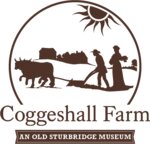Rehoboth Maintains the Right to Farm
Rehoboth is a Right to Farm community. There are signs all over town that promote the fact, but not everyone may know what it really means, especially people who are new to Rehoboth.
Rehoboth enacted its Right to Farm bylaw in May 2005 and it became effective the following month. All fifty states have enacted some form of right to farm legislation. Rehoboth’s bylaw is based on the Massachusetts statute. The Massachusetts Right to Farm Bylaw states that all citizens of the state have the right to farm. The Bylaw “encourages the pursuit of agriculture, promotes agriculture-based economic opportunities and protects farmlands within a town by allowing agricultural uses and related activities to function with minimal conflict with abutters and town agencies.” In general, Right to Farm bylaws protect farmers and ranchers from ‘nuisance’ lawsuits filed by individuals who move into rural areas and later complain about farming operations. Rehoboth’s Right to Farm bylaw includes the language in the state bylaw as well as a list of specific activities covered by “farming” and “agriculture.” Those activities include dairying, growing a variety of agricultural products, growing forest products, raising various livestock and more.
The Rehoboth Bylaw also states:
“The Right to Farm is hereby recognized to exist within the Town of Rehoboth. The above-described agricultural activities may occur on holidays, weekdays, and weekends by night or day and shall include the attendant incidental noise, odors, dust, and fumes associated with normally accepted agricultural practices. It is hereby determined that whatever impact may be caused to others through the normal practice of agriculture is more than offset by the benefits of farming to the neighborhood, community, and society in general.”
Everyone has an opportunity to be aware of the law and what it means, says Selectman Skip Vadnais, who is Bristol County’s elected representative to the State Farm Bureau’s board of directors. “Right to Farm allows you to do things by right, not permission. You can keep chicken and livestock and you don’t need permission to do it, except if you have horses. Then you need to get a stable license,” Vadnais said. “It’s important for people to know that the town does stand behind its farmers,” said Rachel Smith, Chair of the Rehoboth Agricultural Commission.
Residents should be aware that there are normal sounds and smells that occur when you live next door to a farm, says Vadnais.
The sounds include tractors and other farm equipment. “Certain odors and sounds come with the animals. If you are farming under normal, accepted practice, it’s totally permissible,” Vadnais said. Both Vadnais and Smith say that there haven’t been many complaints from neighbors who live near farms. “As more people move into town, we do get complaints and questions. It’s not frequent. It’s occasional,” Smith said. When neighbors do complain, a member of the agricultural commission will visit them and try to mediate any conflict. Sometimes people will call in if they are driving by and see a horse or cow outside in bad weather, explains Vadnais. But there are some animals that should be outside. “Different species have different requirements,” Vadnais said. “It’s often just a matter of educating them. We explain to them what normal agricultural practices are, and what is and isn’t protected,” Smith said. Nine out of ten problems can be mediated, according to Vadnais.
The Right to Farm bylaw does not give farmers free reign to do whatever they want. Farmers must follow certain operating practices and manage the farm properly. “You don’t get automatic protection. You have to be reasonable,” Vadnais said. The situation that occurred at the farm in Westport, Massachusetts where thousands of animals were found sick, dying or dead under horrible conditions would not happen in Rehoboth, says Vadnais. “We don’t have that in Rehoboth,” he said. “I can’t think of any cruelty situation involving animals.”
Officials say it’s hard to know exactly how many farms are located in town. “There are a lot of farms in Rehoboth if you include all the smaller operations,” Vadnais said. There is also quite a variety, from small vegetable growers to large dairy and equine businesses.
“There are a lot of horses in Rehoboth. There are more now than in the 1800’s,” Vadnais said. In addition to horses, residents have hogs, cattle, sheep, llamas, bees and more. There are farms with several hundred acres devoted to growing vegetables. Others have smaller businesses growing flowers and herbs in greenhouses.
Not everyone who has a farm makes a living through the farm. Many do it part time. “Almost everybody who lives in Rehoboth, if they are not involved in agriculture, they have an affinity for it,” Vadnais said. The Right to Farm bylaw and the practice of farming are important to the town. Most residents are proud of the rural nature of Rehoboth and want to keep it that way. “A lot of people move into this town because that’s what they want. They want to live in a rural community. We try to be as rural as we possibly can,” Vadnais said.

















Comments
No comments on this item Please log in to comment by clicking here